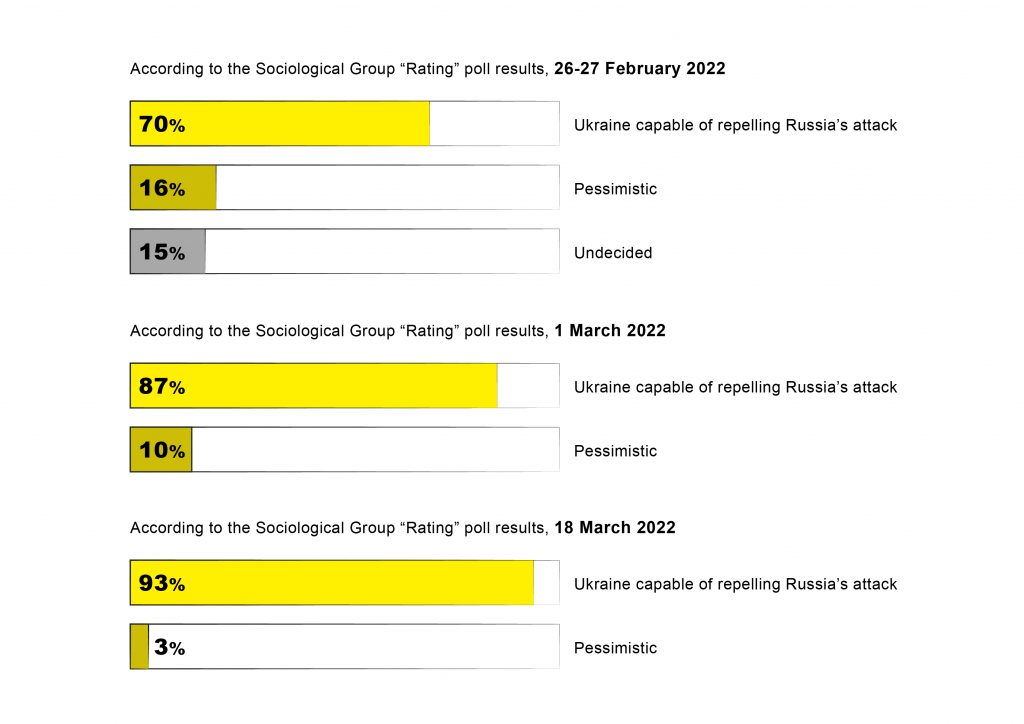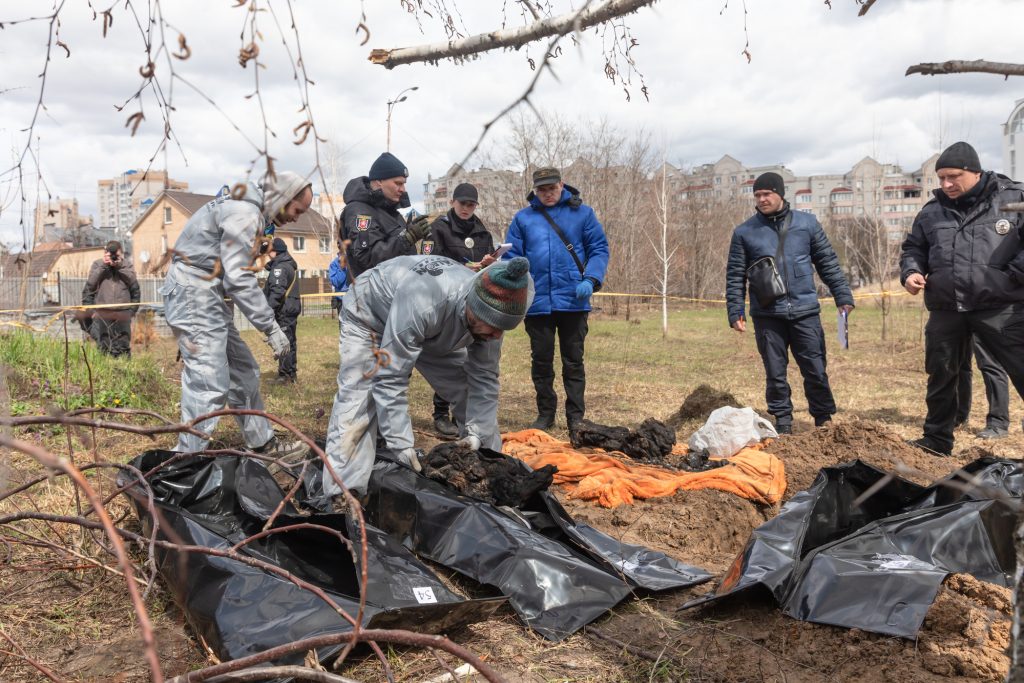More than a year into the war, Ukraine has withstood, however much the Kremlin wanted to destroy it, and even has emerged stronger than ever
Ukraine’s Ambassador to Germany Andriy Melnyk, incumbent deputy foreign minister, mentioned in an interview with the Frankfurter Allgemeine Zeitung last spring his conversation with German finance minister Christian Lindner on the first day of the full-scale war. With a polite smile, Lindner described calls to disconnect Russia from the SWIFT payment system and the supply of weapons as meaningless since Ukraine “has a few hours left.”
Lindner, who is also the leader of the Free Democratic Party of Germany, a partner of the government coalition, still heads the Ministry of Finance, but his position on Ukraine’s prospects has changed drastically. Now he demands that the G7 countries should increase aid to Ukraine, considering it insufficient. Lindner made a corresponding statement in February 2023, after a meeting with colleagues in India.
Ukraine’s ability to withstand was not at all obvious to the world and its ability to fight back was a real surprise. Already in April, when the Russian troops were pushed back from Kyiv and forced to leave the north of Ukraine, more and more Western leaders began to arrive in the Ukrainian capital, and since then the aid acquired a more systematic character and growing scale.
It is telling how the confidence of the Ukrainians themselves grew in the first days of the war. According to the results of the poll conducted by the Sociological Group “Rating”, on 26-27 February, 70% of respondents believed that Ukraine was capable of repelling Russia’s attack, 16% were pessimistic, and another 15% were undecided. Already on 1 March, the number of confident people increased to 87% and the number of pessimists fell to 10%. On 18 March, less than a month into the start of the Russian aggression, optimists outnumbered pessimists 93% vs 3%. All the main terrible trials were still ahead, but the citizens had a feeling of inevitable victory.

A true miracle of the manifestation of a civil nation took place. It would be wrong to say that it arose during the war, the qualities of solidarity, indomitability, readiness for self-sacrifice were accumulated for years, tested by the Maidans and the war since 2014. During the most terrible exam for Ukraine, they showed themselves brightly and concentrated.
Credit should be given to the political and military leadership of the country. Volodymyr Zelensky’s response to Western partners who offered him evacuation went down in history: “I need ammunition, not a ride.” Commander-in-Chief of the Armed Forces of Ukraine Valeriy Zaluzhny, who managed to organise the rebuff to the aggressor who was many times superior in strength, became a symbol of military skill at the limit, and sometimes even beyond the limit of the impossible. All this added confidence that the enemy would not be able to achieve its goal.
To a large extent, the information about the inhumane crimes of the occupiers in the liberated territories promoted the even greater unity of Ukrainians. Behind the Kremlin’s official rhetoric about the “denazification” of Ukraine, genocidal motives for the destruction of the Ukrainians as such have become clear, and this threat serves as an additional incentive for the resolute resistance.

This unity and efficiency of Ukraine in the fight against a very strong, dangerous, and cruel enemy caused strong empathy in many countries of the world. For many of those who did not distinguish among the post-Soviet countries, considering everyone to be “Russian”, the discovery of Ukrainians came as a shock. For those who knew, the heroic behaviour of our people, who were considered doomed to live on the fringes of the European world but moved to its centre by their feat, came as a shock. Europe has responded to our pain with a huge wave of solidarity, sheltering millions of refugees and providing colossal humanitarian aid.
The sense of belonging to Europe has also increased among Ukrainians. If before this stage of the war with Russia, less than half of the population were in favour of joining NATO (47.8% as of June 2021), now, as of January 2023, 86% support the Euro-Atlantic prospect, and only 3% are against. A total of 87% of respondents support joining the EU (data provided by the Sociological Group “Rating”). And, as we know, these aspirations found a response. Last June, Ukraine was granted EU candidate status. NATO is considering Ukraine’s application, submitted in September, for fast-track accession to the Alliance.

Moreover, interaction with European partners during the war has become so intensive that one can speak of de facto European integration. The role of Ukraine in the protection of European collective security has become unique, and this must definitely be taken into account during the construction of the post-war security system. The leaders of the European Union and NATO and member states have repeatedly emphasised that Ukraine has a future in these structures. There is only one important thing left: to win this difficult war first.
None of the countries paid such a terrible price for the right to join the family of European countries. Ukraine continues paying it. Yes, Ukraine has secured a European future for itself. We just need to survive the present, in which the routine is a constant threat of death posed by Russian missiles, Iranian Shahed drones, bullets, and shells that continue to destroy our land and our people.
Leonid Shvets






 UA
UA FR
FR DE
DE




